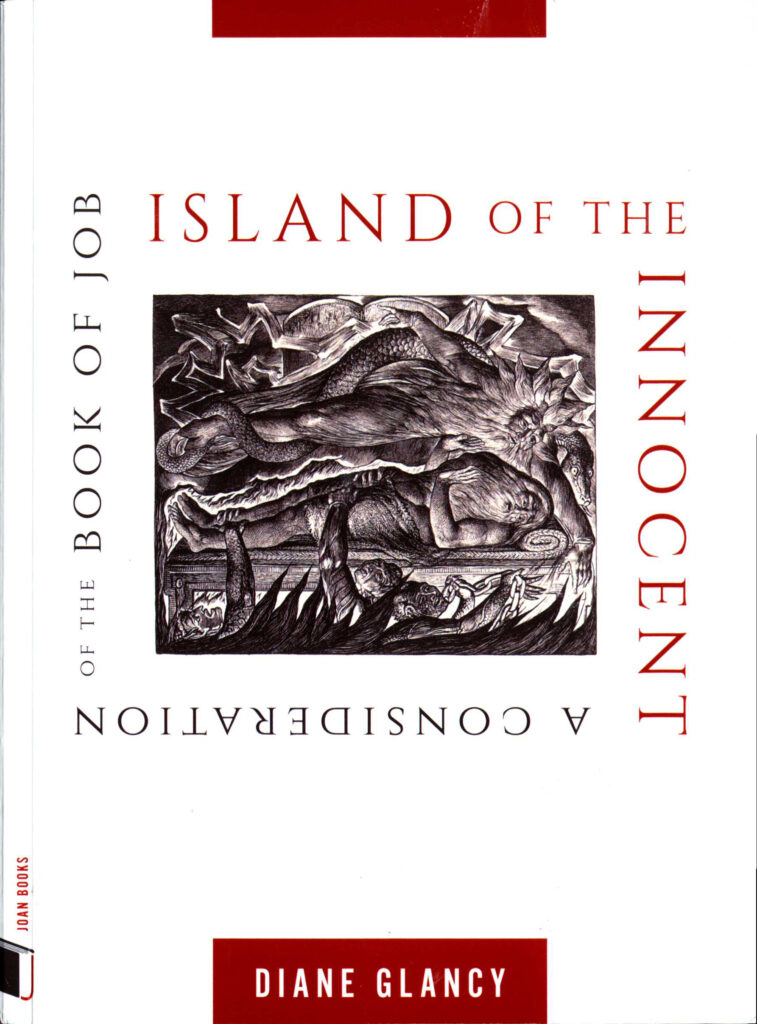
Diane Glancy aptly titles her work a “consideration.” Island of the Innocent; A Consideration of the Book of Job, (2020 Turtle Point Press) visits perspectives on the biblical book of Job and the suffering and loss of the man who God considered righteous and blessed. A mixture of prose and poetry, Glancy inhabits these perspectives through questions and laments, copying the rhetorical form of the ancient text.
In the forward she writes that she wanted to explore Job “with poetics and prose until the fissures appeared.” (i) And that action and consequence generated the eight-part collection. The first fissure Glancy notices and complicates her meditation with, is the connection between the injustice towards the innocent Job and the atrocities committed upon the Native Americans. In the poetry sections, the poet slides between eras and continents in both personification and in lines of question. Job is a “tribal man separated from his tribe during trial.” (32)
The characters of the book of Job; Job, his wife, his sons and daughters, his four friends, God, and Satan, get a voice in this collection. These voices are used to shed light on a different perspective of the situation— and the situation is fluid. In one instance it can be the time before the testing of Job, or after, or in the American West in the nineteenth century. These fluctuating perspectives engage the reader and allows the entry of their own stories and arguments into the consideration.
The thread of correlation between the native American’s and Job is the act of suffering, and Glancy is submitting that the exigence of these sufferings are connected— they are approved by God. The book is asking the pertinent and important question of faith and humanity, “Why, God? Why the suffering? Why do you send Satan out to meddle and test your beloved?” To answer this, the eighth section is labeled “Restoration.”
However, to draw the correlation between the tests that Job suffered proving his righteousness and faithfulness to his God and the suffering of every tribe of Native American is tenuous at best. This in no way excuses the actions of those who executed the atrocities, but textually, Job was a complete innocent. In regard to the Native American’s, we are not disturbed and sorrowful because of the relatively moral condition of the attacked and lied too, but because of the situation and deed in general. Nor do we assume these tribes as victims of tested faith.
The endeavor of this text is appreciated. The liberty it takes in form and content is ambitious, and it pays off. The reader is lead into their own considerations of both the arguments set up by Glancy and the characters in Job, including the Judeo-Christian God. The lines of questioning should be recognizable for many individuals who have cried out in their own battles with sorrow.
—Johanna Tollefson